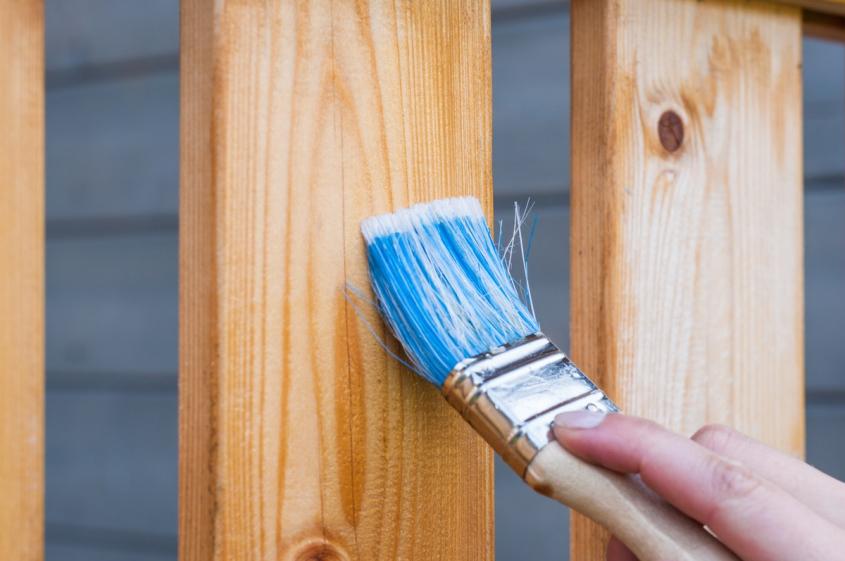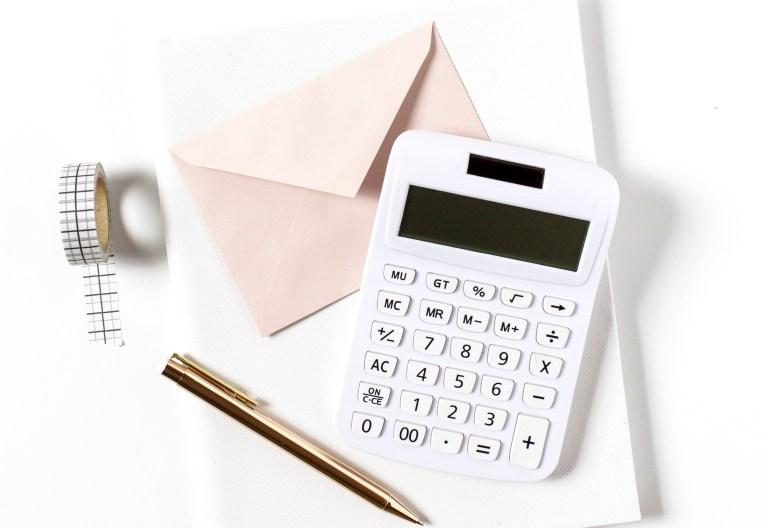Last Minute Steps To Claim More Investment Property Tax Deductions
“What else I can claim as investment property tax deductions?” I hear this question all the time.
The end of financial year is upon us. In a few weeks time, you can pull out all your records and prepare your tax return again. Hopefully you’ll get a tax refund, because I’m yet to meet someone who’s happy to pay more tax on top of what’s been paid during the year. Understandably, there are more people than usual in June, seeking tax advise on what to do to minimise tax.
We talked about how to contribute to your Super fund to claim tax deduction before. In this post, I’m going to focus on what can be done to claim more investment property tax deductions. You might think it’s too late in June but there are still a few last minutes steps you can take to boost your tax refund or minimise your tax payable.
First of all, get a check list of what you can claim as investment property tax deductions.
Expenses for immediate tax deduction
Advertising fees to look for tenants
If you are engaging a real estate agent to manage your property, this cost will be listed on your yearly income and expense report. If you are managing the property yourself and found your tenants through newspaper or online ads, make sure to keep a record of advertisement fees.
Rates
This includes Council rates and water rates. Though it sounded basic, but trust me, plenty property investors don’t know those are part of investment property tax deductions. So make sure to keep all the records of your rate payments during the financial year.
Strata levies
Also know as body corporate fees, are getting higher and higher each year. Remember, you can claim immediate deduction on payments to body corporate administration funds and general purpose sinking funds. They form a big part of investment property tax deductions, so don’t miss this category. However please be mindful, payments to a special purpose fund to pay for particular capital expenditure are not deductible.
Utility costs
Tenants usually pay their own electricity, gas and water usage costs. However in some cases, landlords agree to paid all of it or a percentage of these costs. As a property investor, make sure to claim the utility costs you paid as part of your investment property tax deductions.
Gardening and yard work
This includes dump fess, labor costs you paid for tree lopping and lawn mowing. You can also claim costs of replacement of garden tools, fertiliser, sprays and replacement of plants.
Cleaning
This category of expenses include internal, for example, carpet cleaning and external cleaning, for example, house cleaning. Therefore, you can claim payment to cleaners and cost of cleaning materials for your rental property as investment property tax deductions.
Insurance
There are many types of insurance you can get for your rental property. As a result, you can claim building insurance, contents insurance, public liability insurance and landlord’s insurance 9covers rental defaults) as investment property tax deductions.
However, please be mindful that you can’t claim mortgage insurance as your rean tax deduction as it forms part of your borrowing cost.
Interest
You can claim tax deduction for interest paid on loan to purchase, build, repair and improve your investment properties. For example, interest on your investment property mortgage is tax deductible. Like wise, you can claim interest on loan taken out to build your investment property, providing the property is rented or available for rental during the year you are claiming a tax deduction.
On top of the above, you may also claim interest charged on loans taken out:
- to purchase depreciating assets,
- for renovations, or
- for repairs to the property.
Note, from 1 July 2019, you can’t claim tax deduction on interest or other holding cost of vacant land with no permanent structure on it in general.
Land tax
A big percentage of property investors miss claiming land tax deductions because very often, land tax incorporate their main residence as well. But you can certainly claim the land tax paid in proportion to your rental property as a tax deduction.
Agent management and admin fees
Most property investors engage real estate agents to manage their investment properties. Of course, this serve doesn’t come free of charge. Typical agent fees includes, property manage fees, admin fees, sundry fees such as postage etc, annual report fees.
Legal expenses
As a property investor, you can’t claim legal expenses are capital in nature, such as costs of:
- purchasing or selling the property
- resisting land resumption
- defending the title to the property
However, you can claim legal costs in order to evict non-paying tenants.
Office supplies
Property investors can claim stationery, rent books, postage and business use percentage of a computer etc in relation to managing their rental property. As a result, those costs are tax deductible
Telephone
As a property investor, you can certainly calls made to a tenant, agent or tradesman to arrange repairs etc. Bear it in mind, in case of a tax audit, you’ll need to provide a diary detailing this expense.
Repairs and maintenance
This is a more complicated area. In general, you can claim repairs and maintenance costs while your rental property is rented.
Repairs generally involve a replacement or renewal of a worn out or broken part. For example, replacing some guttering damaged in a storm. Similarly, replacing part of a fence is a repair job. If you replace the entire fence, the cost will become capital in nature. As a result, you can’t claim the total cost immediately as a repair cost. You can however, claim the cost of replacing the entire fence over a number of years as part of deprecation.
According to ATO, initial repairs include costs you incur to remedy defects, damage or deterioration that existed at the time you acquired the property. Therefore, those costs are considered to be
capital in nature, not immediate tax deductions.

Depreciating assets costing $300 or less
You can claim immediate tax deduction for your rental property depreciating assets costing $300 or less. For example, if you bought a microwave for your rental property for $299 last month, you can claim the entire amount in this financial year.
Even better, you can claim immediate tax deduction if you hold an asset jointly with others and the cost of your interest in the asset is $300 or less. This is the case even though the total cost was more than $300.
Expenses as tax deduction over a number of years
Borrowing costs
You might incur certain costs when borrow from a bank. Typical borrowing costs are as below:
- procurement and establishment fees
- legal expenses for mortgage
- stamp duty on mortgage (Many states have abolished mortgage stamp duty)
- valuation for loan approval
- survey and search fees
- mortgage broker’s commission
- lenders’ mortgage protection insurance
You can claim those expenses as tax deductions over the period of your loan or 5 years, whichever is shorter. If the total cost is less than $100, you can claim the whole amount in the relevant financial year.
Depreciation on assets
You can claim tax deductions on depreciation of assets such as air conditioners, stoves etc costing over $300 (your share) over their effective lives.
Tax Ruling Taxation Ruling TR 2020/03 – Income tax: depreciation effective life is very helpful guide in this regards. If you decide to make an estimate of effective life, you need to use a similar methodology the Tax Commissioner used.
Capital works/building write off
You can claim investment property deductions on certain kinds of construction expenditure. In the case of residential rental properties, you can generally claim the cost over 25 -40 years.
These are referred to as capital works (special building write-off) deductions. The deduction is limited to 100 per cent of the construction expenditure.
Deductions based on construction expenditure apply to capital works such as:
- a building or an extension (for example, adding a room or garage),
- alterations such as removing or adding an internal wall, or
- improvements to the property – for example, erecting a pergola, patio or carport.
Deductions can be claimed only for the period the property is rented or is available for rent.
What you can do now in June to claim more deductions as a landlord?
We’ve covered a long list of expenditures that you could claim as tax deductions for your incoming tax return. Now, you might ask what you can do now in June to get more tax benefit. Is it too late?
Of course not. Here are a few last minutes steps you can take to boost your tax return:
Seek tax advise if you need help
Always ask for professional advise if you need help to improve your tax position. The fees you paid to professionals for tax advise is tax deductible. So don’t forget to ask for a tax invoice to include it your tax return.

Carry on minor repairs
Does your investment property need some minor repairs and maintenance? It’s time to get it done now. Need a new lick of paint? A few new light bulbs? Another set of keys and swipe card? Why not get them organised now. Any R&M expenditure paid in June for your existing rental property will be 100% tax deductible.
Conduct a pest control
There has been a lot of rain in the past year. Consequently there have been a lot of spiders and other pests around. June is the perfect time to conduct a pest control to protect your investment property. Your tenants will thank you for that and potentially stay longer.
Prepay some expenses
Have some bills in relation to your rental property floating around but not yet due? You can pay them now to claim an immediate tax deduction and boost your tax refund.
You can claim immediate deduction if you prepay expenses such as insurance or interest on mortgage if either:
- the amount if less than $1000,
OR
- the payment covers a period of 12 months or less and the period ends on or before 30 June of the next income year.
Replace/Purchase assets for under $300 (your share)
As mentioned before, you can claim immediate tax deductions on assets costing less than $300. So think hard, what do you need for your rental property that will cost $300 or less before the financial year ends.
If you own a property jointly with others, as long as your share of the asses is $300 or less, you can still claim an immediate tax deduction.
For instance, you own a rental property jointly as a couple. Your rental property in great need of a new air-conditioning costing $600. By all means, go and get it now. You can claim the whole amount this year instead of claiming the depreciation costs over a number of years.
Get a depreciation schedule
If your rental property is a lot less than 40 years old and you don’t have a depreciation schedule, get one done. Now.
Depreciation schedule is especially important for brand new rental properties because the tax benefit will be thousands of dollars. The cost of getting depreciation schedule is usually a few hundreds of dollars and it’s totally worthwhile. Besides, the cost of depreciation schedule is tax deductible too.
In conclusion, there’s still plenty time to be prepared and claim more tax deductions come July. It’s all about research and planning.









Leave a Reply
Want to join the discussion?Feel free to contribute!